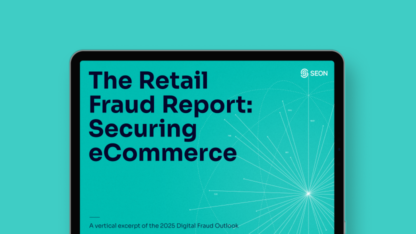Reverse phone lookup is a versatile tool for identity verification, fraud detection, and lead generation. By analyzing a phone number, businesses can access public data to enrich user profiles, spot suspicious activity, and make faster, smarter decisions.
Enter a phone number to start your lookup:
If looking up a phone number, please include its country code without plus signs, spaces or hyphens. By trying this tool, you’re agreeing to our Privacy Policy, General Terms of Service and Data Processing Agreement.
What Is a Reverse Phone Lookup?
A reverse phone lookup uncovers valuable insights using a single data point: a person’s phone number. As a form of data enrichment, it enables organizations to build more complete and contextualized user profiles, enhancing everything from fraud detection to customer intelligence.
By entering a phone number into your lookup tool, you can retrieve publicly available information sourced from OSINT (open-source intelligence) channels such as social media platforms, messaging apps and even government records. The system aggregates these insights to reveal connections tied to the number, whether that’s a digital footprint, location data or activity patterns.
Reverse phone lookups are often used in combination with other enrichment tools, like reverse email or social media lookups, to improve risk assessment. For example, a number with no associated online presence or social profiles may raise red flags for fraud, anonymity or non-genuine behavior.
How Does a Reverse Phone Lookup Work?
Reverse phone lookup works by searching online sources for the appearance of a specific phone number. These sources may include social media profiles, messaging apps, online directories and other publicly accessible platforms. If the number is found, the tool compiles the related information into a single, easy-to-read profile.
There are several ways to run a reverse phone lookup, from manual searches to automated systems that use software or API integrations. For businesses dealing with high volumes of data, some services also allow bulk uploads, making it possible to analyze hundreds or even thousands of phone numbers in one go.
The effectiveness of a lookup largely depends on two things: how much data exists online about the number, and how capable the tool is at retrieving and interpreting it. While some tools offer basic results for free, more advanced solutions often charge for access to deeper insights and broader datasets.
What Information Does a Reverse Phone Lookup Reveal?
A reverse phone lookup can surface a wide range of publicly available information tied to a specific phone number. This may include details such as the owner’s name, location, workplace or presence on social media platforms and websites.
For example, if a number is linked to a personal address, business listing and a social profile, the lookup may indicate:
- Where the person lives
- Where they work or conduct business
- Elements of their online presence, such as profile photos, posts and interests
Social media insights are particularly useful for understanding someone’s digital footprint and verifying the authenticity of their identity.
In some cases, a lookup can also uncover past associations, such as previous phone numbers or older addresses, if that data is still accessible.
It’s important to note, however, that results will vary. The quality of the data depends on both the phone number’s online footprint and the capabilities of the tool being used. Not all lookups will return meaningful information, especially if the number is new, unused or deliberately hidden.
How Central Europe’s top BNPL stopped ID fraud fast with SEON’s phone and email enrichment. Real-time checks. Fewer fraudsters.
Read the case study
Why Is Reverse Phone Lookup Important for Your Business?
Phone numbers have become a key part of our digital identity. Analyzing them can offer valuable context about who someone is, making reverse phone lookup essential for both individuals and businesses aiming to build trust and reduce risk.
For companies in particular, it’s a powerful way to answer crucial questions:
- Who called me?
- Who owns this number?
- Is it real and active?
- Can I trust the person behind it?
Reverse phone lookups help ensure you’re engaging with genuine users, improving everything from fraud prevention to customer service, marketing and sales. They also eliminate awkward communication gaps: no more guessing who’s behind a number or asking for missing contact details.
This tool also offers a safety net in critical scenarios. For instance, if your CRM were wiped and you still had phone numbers on file, bulk reverse lookups could quickly restore key user information, helping you resume operations with minimal disruption.
In short, reverse phone lookup supports better decisions, stronger relationships and more efficient communication across your business.
See how SEON’s reverse phone lookup helps you spot fake users, assess risk, and speed up verification—guided by our fraud experts to protect your business.
Speak with an expert
When Should You Use a Reverse Phone Lookup?
Reverse phone lookup is useful any time you want to learn more about the person behind a phone number, whether for personal, professional or security-related reasons. Use cases range from simple curiosity (like recalling where a friend lives) to serious matters, such as identifying potential fraud or reporting scams like wangiri calls.
From a business perspective, it’s especially valuable when you encounter a phone number linked to questionable or incomplete details. If you suspect the number is tied to a fake identity or risky behavior, a reverse lookup can help you verify legitimacy before moving forward.
One of the most common and time-sensitive situations is receiving a missed call from an unknown number. A quick reverse lookup can reveal whether the caller is genuine or potentially malicious, helping you avoid fraud and make informed decisions quickly.
How to Perform a Reverse Phone Lookup
Follow these simple steps to run a reverse phone lookup:
- Choose a lookup tool: Search for a reliable reverse phone lookup tool online. Look for one that clearly explains what data it returns.
- Enter the phone number: Input the number you want to check. Some tools allow for bulk uploads if you have several.
- Review the results: The tool will display any linked information, such as names, locations or social media profiles.
- Compare across tools: For better accuracy, try multiple tools. If results differ, trust the majority or the more consistent matches.
- Check for limitations: Some tools offer free insights, while others may require payment for full reports or premium data.
Using a combination of tools and cross-referencing results can help you gain the most accurate picture.
How Can SEON Help with Reverse Phone Lookup?
SEON transforms reverse phone lookups into dynamic, real-time fraud prevention tools by enriching phone number data with behavioral signals from a user’s digital footprint. Instead of simply confirming whether a number exists, SEON analyzes hundreds of digital and social data points to help you determine whether the person behind the number is genuine or suspicious.
When you input a phone number, SEON instantly checks for its presence across social platforms, messaging apps and other open-source intelligence sources, providing a clearer picture of the user’s online legitimacy. The more signals associated with a number, the more likely it belongs to a real person. This allows you to make fast, accurate decisions without introducing friction.
In addition to verifying presence and behavior, SEON automatically assigns a fraud score based on the overall risk indicators linked to the number. You’ll also gain contextual insights such as the phone type, carrier and whether the number is disposable or connected to suspicious activity. If you have extra data points, like an IP address or email, SEON can enrich the profile further, enhancing your risk assessment model with deeper context.
Whether you’re screening signups, verifying identities or blocking fraud before it affects your bottom line, SEON empowers your team with the intelligence to act quickly and confidently, all through one simple lookup.
Frequently Asked Questions
Use reverse phone lookup to see if the linked address is based in a potentially suspicious area, such as a call center from another country. On top of this, there are spam call detection apps that you can install on your phone, but always be sure that they’re from legitimate sources before downloading them.
All kinds of phones. In fact, reverse phone lookups can tell you the type of phone it is. For instance, SEON’s Phone API results include whether the number is Voice over Internet Protocol (VoIP) or disposable, the associated caller ID name (CNAM), the country of registration, and much more.
A good phone lookup service will let you know its price ahead of time. Professional services tend to charge a monthly fee as part of a subscription. Beware of “free” phone lookup services where the query is free but the results are hidden behind a paywall.
No. Reverse lookup is designed to present details about the phone number itself, not the messages or calls that the phone number has made, sent, or received. A reverse phone lookup, no matter how successful, will not provide any information about the specific activities of the phone and its number, just the contact information (such as social media profiles) that it’s associated with.
No. A reverse phone search does not notify the phone number owner that someone has performed a lookup.









